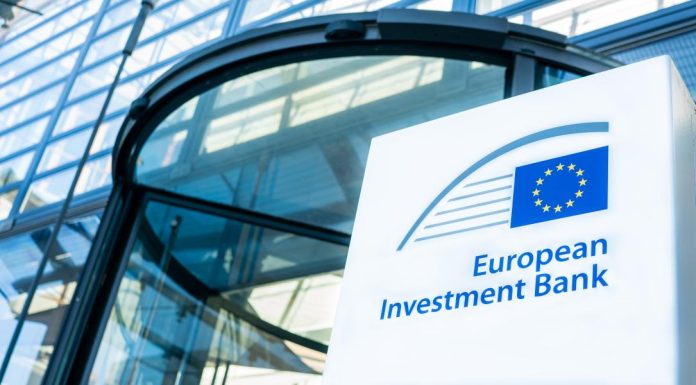The partnership between the European Investment Bank (EIB) and local private equity funds is breathing life into Kenya’s private sector amid challenging economic conditions. It provides an alternative funding source to the traditional banks, SACCOs or family and friends.
EIB, through the Boost Africa initiative, is helping address challenges facing the country’s private sector through capital mobilisation, provision of technical assistance, and strategic partnerships, thereby unlocking new opportunities for startups and high-growth businesses, female entrepreneurs and youth-led businesses across the country.
Private capital is emerging as a powerful driver of development in Africa since the private sector alone cannot provide the capital needed to meet demand. Since the 1990s, the EIB has been at the forefront in helping bridge the venture-capital gap for early-stage and growth-oriented companies across sub-Saharan Africa. The lender’s support involves financing local private equity and venture capital funds which in turn invest in high-growth potential enterprises and startups in Africa.
Beyond financial support, the Boost Africa initiative is designed to provide technical support and operational expertise to give emerging African businesses a leg up to grow sustainably into the future.
- Enhancing access to affordable finance for businesses
One of the biggest constraints facing Kenya’s private sector has been limited access to long-term and affordable lending for SMEs. Traditional lenders often impose strict requirements, including high collateral demands and thorough credit assessments, which many enterprises especially startups cannot meet.
EIB has stepped in via an intermediated lending framework that provides credit lines to local banks to then on lend to SMEs or investment in local private equity and venture capital funds enabling them to in turn invest in businesses with by taking on some equity in the businesses, without the requirement of quick repayment.
Under the first phase of the Boost Africa initiative, the EIB has invested EUR 78 million in six African funds, which in turn helped mobilise EUR 382 million from other investors into these six funds. Over 70 companies across Africa have benefited from capital injection and technical assistance training, and the number is set to surpass 120 companies by the end of the investment period. This is creating thousands of jobs for Africa’s youth.
In Kenya, Boost Africa works with funds like Seedstars Africa Ventures, TLcom, Atlantica, and AfricInvest to support enterprises active in sectors like ICT, healthcare, climate-tech, agriculture, education, financial services, and manufacturing.
How EIB-backed private equity funds are transforming Kenya’s agri-value chain
- Targeting women, youth and inclusive growth
Boost Africa has a particular focus on women and youth-led enterprises, which are some of the segments that have traditionally been underserved when it comes to access to capital. EIB intervention through tailor-made products aim to drive gender equality, youth employment and inclusive entrepreneurship, creating a more diversified entrepreneurial base.
As these enterprises grow, they create more jobs and stimulate demand for goods and services from other sectors, ultimately creating a more vibrant and resilient economy that can better withstand external shocks.
- Boosting value-chains in agriculture, trade and manufacturing
Beyond finance, EIB has supported initiatives to strengthen entire value-chains especially agriculture, trade and manufacturing, some of the key pillars of Kenya’s economy.
The lender is among financiers supporting the ARCH Cold Chain fund, which is building temperature‑controlled storage facilities, an infrastructure that aims to reduce post‑harvest losses and improve the quality of produce along the value chain in horticulture, meat, and poultry. One is already operational in Nairobi’s Tatu City and the fund is eyeing regional expansion.
Moreover, through the Boost Africa programme Kenyan agri-tech firms such as Shamba Pride have received financing and technical support to expand. These firms connect thousands of farmers to quality inputs and markets, enhancing productivity and commercial viability.
By strengthening production, processing, and distribution, the EIB is helping SMEs scale, create jobs and integrate into global supply chains.
- Providing technical assistance and capacity building
Capital alone is often insufficient as fund managers and entrepreneurs need to be equipped with skills, governance standards, and management expertise needed to scale sustainably. Indeed, investors who are keen on investing in Africa have decried a lack of a steady pipeline of investor ready projects to put their money in.
Recognising this, Boost Africa’s support frequently includes technical assistance helping partner fund managers and entrepreneurs design inclusive products, training SMEs to become bankable, and facilitating networks or advisory services.
“Our role is to help these startups build operational capacity, refine governance and ESG systems, and become investor-ready,” Astou Dia, Boost Africa Lead–Kenya says.
Such capacity-building ensures that financing flows are used effectively to create sustainable enterprises rather than short-lived operations.
- Catalysing further investment and crowding-in private capital
EIB’s early investment in funds often serves as a signal to other investors who may be hesitant to also commit their money to African funds, thereby unlocking further private financing. Under the Boost Africa programme, EIB committed €78 million which mobilised nearly €400 million in additional investment into high-growth African firms.
Additionally, the EIB has structured something called a junior tranche, which basically means that it commits to absorb most of the losses that these African funds may have, if any, thus shielding other investors. If there are profits, it commits to take less profit and give more to the other investors.
This attracts international investors who would otherwise have stayed away from Africa due to the perceived risk of investing here. It is also giving these investors a chance to experience first-hand that investing in Africa has social impact and is commercially viable.
Boost Africa’s end goal is to create a self-sustaining venture capital space where Africa and African enterprises can independently attract funding from both local and international investors who understand the context of doing business in Africa and can appropriately price the risk.









